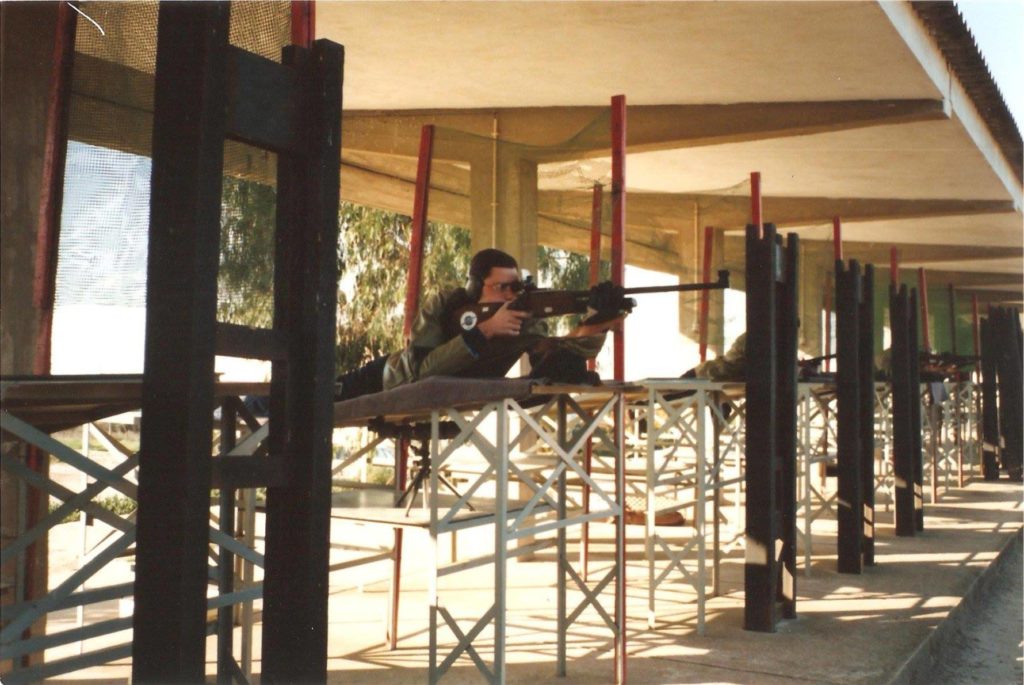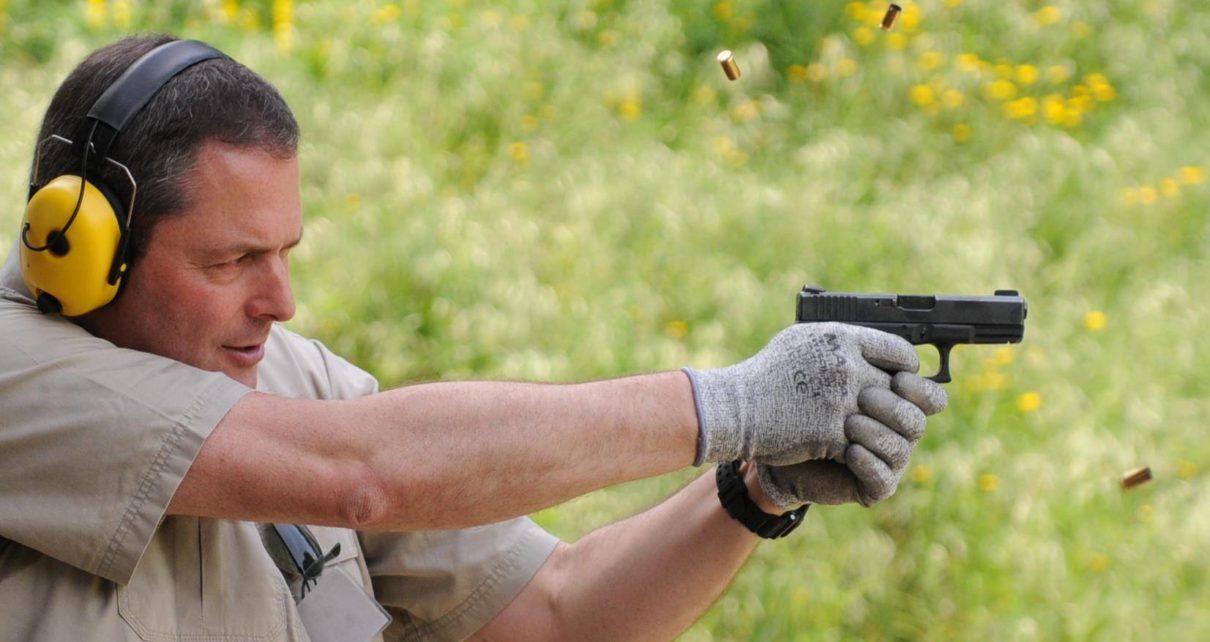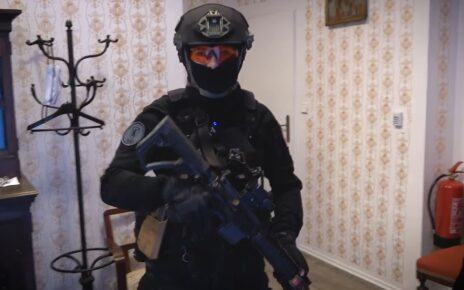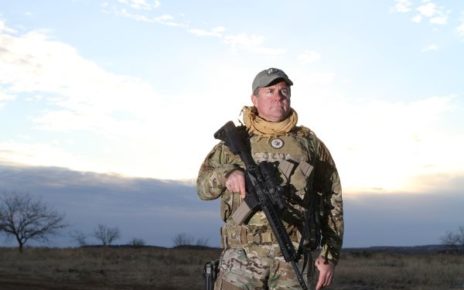In the third part of an exclusive interview with zbrojnice.com, Vítor Teixeira talks more about his personal relationship to firearms.
Rozhovor v češtině si můžete přečíst zde: Zbraně & Vítor Teixeira, portugalský sportovní střelec, policejní instruktor a zbraňový soudní znalec
Zbrojnice.com is a Czech language web that deals with practical, legal, cultural and social issues of civilian firearms ownership. This interview was conducted in English and thus you can read it also in original language version below.
Interview with Vítor Peixeira:
- The gradual erosion of gun rights in Portugal since 2006
- Current state of gun laws in Portugal – even pepper spray licences are becoming unobtainable
- Firearms & Vítor Teixeira, Portuguese spot-shooter, police instructor and court expert on firearms
Vítor, when was your first experience with firearms? What was your relationship to firearms before you became a sport shooter?
I am a sport shooter since I was 15 years old. I was lucky enough to have school colleagues that introduced me to a shooting club in my hometown of Porto. Back in 1980s the clubs and shooting associations were aided by the Portuguese authorities, especially the Portuguese Army Training Division. Therefore we had “shooting schools” where youngsters were thought and trained free of charge. They also had pistols and rifles for lending to the associates, and the ammunition (air pellets and .22 LR cartridges) was free for us during the trainings and competition. I had the opportunity to learn and practice shooting disciplines, such as air rifle and small bore rifle.
Back in those days some shooting clubs had standard full automatic Portuguese Armed Forces rifles HK-G3 borrowed from the army’s training division. Senior shooters used to train and compete in the 300 m rifle competitions. Today that would be impossible and I think that most people won’t even believe that this was once a standard situation. For example, my shooting club had two full-auto HK-G3 and plenty of ammunition, however there was never one single incident in which anyone from the sport shooting community used those rifles, or any other firearms, in an irresponsible way. And those rifles remained there for decades…
Later on, when I was 21, I entered the Portuguese Army and stayed there for almost 10 years. Due to my earlier shooting experience I joined the Army Shooting Team and I could maintain regular training and competition in rifle disciplines. Meanwhile, I was selected to undertake the “Shooting Officer Course” and became the officer in charge of all shooting and weaponry instruction in my military unit.
By 1996, I entered the Portuguese criminal police (Polícia Judiciária) and two years later became a police shooting instructor.
Since my main service weapon became a pistol, I decided to change my sport focus and abandoned the rifle competitions in favor of pistol shooting. In 1998, I began practicing IPSC. Since then that is the only shooting discipline that I practice at a competition level. I keep training with rifle and shotgun, but not at that high competition level I was used to.
I suppose you must have quite a few firearms. Are there any guns you are particularly fond of?
I used to have a few firearms. But as soon as the Portuguese laws become more restrictive after 2006, I started selling almost all of them. I predicted, unfortunately too well, that some of the firearms I used to have could became illegal by being reclassified as “Class A” firearms due to their military resemblance. That, by the way, completely depends on subjective determination of the Security Police (PSP).
Nowadays I only own one Glock 17 (for IPSC competition and defense), one rifle and one shotgun for sport use.
My main passion today is cartridge/ammunition collecting and all issues related to ammunition historical research and small arms terminal ballistics. So I have a considerable collection of obsolete and very rare cartridges. I am the co-founder of the Portuguese cartridge collection association “Associação Portugesa de Coleccionadores de Munições” (A.P.C.M.), a member of the “Asociación Española de Coleccionadores de Cartucheria” (A.E.C.C.) and of the European Cartridge Research Association (E.C.R.A.).
Of course if Portuguese laws where not so restrictive, I would like to collect firearms as well. Especially pre-WWII models, the period I like the most in the history of firearms evolution.
Being things as they are, I guess I’ll have to restrict myself to old cartridges collecting.
Are Czech firearms well known in Portugal?
Yes! CZ is very is well-known, both in the hunting community and among the sport shooters, especially in IPCS competition. In fact CZ pistols had always been regarded as excellent.
Although we don’t have a significant collector’s community, CZ and BRNO are also very appreciated in that field of interest.
How often do you shoot? What competitions do you take part in? Any particular successes?
I am lucky enough to be the master Shooting Instructor in my police department; therefore I can train a lot of police shooting. But those are trainings included in my professional obligations. The sport and competitive trainings are part of a different universe.
I must confess that in that regards, things are not so good in Portugal. Not only because there are not many shooting ranges, but also because of the cost of ammunition. Taxes in Portugal are quite high and ammunition is expensive, therefore I don’t train as much as I would like to.
Nevertheless, I try to participate in at least one level III IPSC match and 3 to 5 level II IPSC matches each year.
A major success in competitive shooting? Well… those times are long gone. In the “old days” of military shooting team, I achieved the title of regional champion for three consecutive years, and once I reached the second place in the national championship in UIT precision rifle 300 meters and CISM rifle 300 meters. Nowadays I am just a regular sport shooter.

Are there any special drills you do during your training?
As mentioned before, most of my training is related with professional “police shooting”.
Perhaps I should explain that In the Portuguese Criminal Police (“Polícia Judiciária“, PJ) we have a significant amount of regular (and obligatory) training. I am talking about police shooting, and police technics at a very high level. In the criminal Police we take shooting training very seriously. For example, in order to fulfill the annual minimum training obligations, all police personnel must pass through 3 shooting session a year. Those training sessions include realistic situations, moving targets, limited time for engagement, shoot/no shoot situations, and shooting on the move. Besides the minimum 270 shots a year, we can train a bit more, and the shooting instructors actually have to train a lot more.
Could you please describe your favorite firearm? How did you choose it, what are its main advantages and drawbacks?
I will restrict my answer to small firearms; since those are the ones I carry and use every day.
In that segment, my favorites are Glock pistols.
I’ve shot many hundreds of thousands rounds with Glocks, both during my professional work as a shooting instructor and in IPSC competitions, and I considerate it the most reliable pistols I’ve ever shoot. And trust me, I shot many other brands in different models and versions.
The major advantage I recognize in Glock is reliability! And I’ve used “my” service Glock in very demanding circumstances, sometimes with extremely over powered ammunition, sometimes with very week loads, sometimes shooting with the pistol full of dust or even mud, but it always worked. Furthermore it only shoots if I press the trigger. All things considered, that pistol has exactly what I demand in a service and defense pistol:
- It always shoots if the trigger is pressed;
- To shoot I just have to pull the trigger;
- It never shoots if the trigger is not fully pressed;
That’s why I use a Glock 19 as a service firearm.
I used to own a Glock 34 and now I have a Glock 17 for defense and IPSC and I am willing to buy a Glock 43 as a backup gun. I would change my Glock 17 for the new Glock 45 for using it as IPSC and defense pistol, but Portuguese laws don’t allow the use of pistols with barrel measuring less than 105 mm length for sport shooting. And Glock 45 is 3 mm too short.
The way I see things, I should use the same pistol for sport as for defensive and professional purposes. I carry a Glock everyday as a service and defensive pistol and I’d rather not get accustomed to high tech sport pistols.
That is the main reason I don’t change to – for example – a CZ Shadow 2 pistol, which in fact is the one I would like to have for IPSC, since Glocks are not god for high level competition.
Of course if I could do a lot of sport training, I could have two completely different pistols for those different purposes. Since I don’t, I prefer to use only one pistol, and both professional and sport training is done with a similar pistol. I even fine-tuned my Glock 17 trigger so that is resembles the “hard and heavy” trigger pull I have in the Glock 19 service pistol.
Thank you very much for the interview. Any final words towards Czech gun owners’ community?
Yes! Please keep fighting against these absurd European regulations!
Czech gun owner’s community is both an example to us all, as you probably are the last European bastion of defense of the legal firearms owners.




I am thinking of emigrating to Portugal to be with my daughter . Who lives near Porto. I have three rifles.22,.223 and 7.65 caibres all bolt action magazine fed, and three DB shotguns 2x 12 bores and one 20 bore. I also have a .36 calibre percussion revolver. Would I be allowed to take these weapons into Portugal?
John, I am afraid you will not get an answer here. Try https://old.reddit.com/r/EuropeGuns/